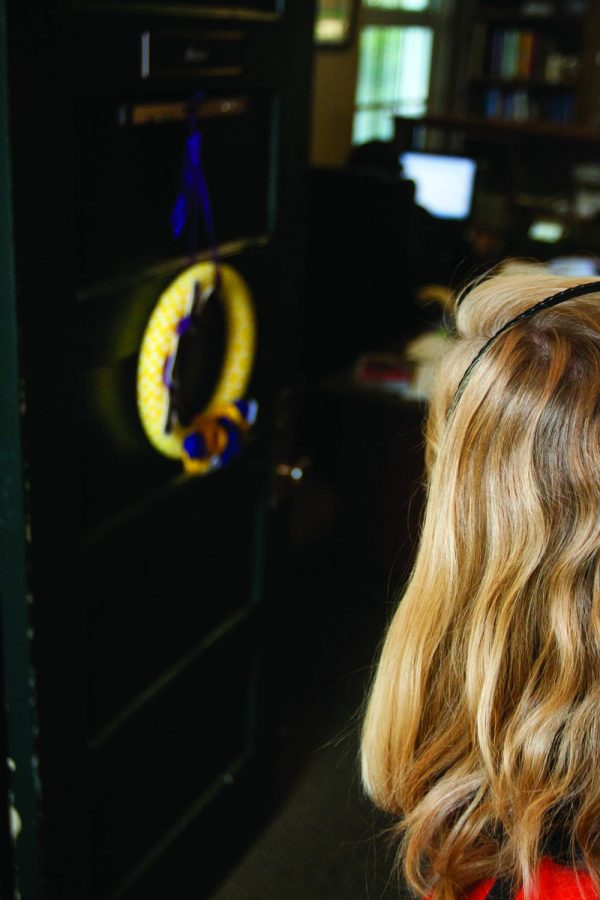Every move you make
September 5, 2013
The popularity of social media has left faculty and students alike speculating on how their relationships should translate on the Internet.
Beth Garfrerick, assistant professor of communications, said she supports professor-student relationships on social media.
“As a communications professor, I have no problem with social media relationships – I’m very open about it,” Garfrerick said. “I like to add students as friends on Facebook after they leave, because I can see them grow professionally.”
Student David Johnson said he agrees and supports social media relationships.
“I personally don’t think there is anything wrong with adding a professor to social media, as long as you have developed a good relationship with the professor,” Johnson said. “I have several of my professors on my social media, but they are all teachers whom I’ve developed a strong relationship with. I wouldn’t add a teacher that I’d never spoken to outside the classroom.”
The foundation of student-professor relationships can actually be strengthened by an online presence, said student Alli Benson.
“Students should already maintain a somewhat professional appearance on social media websites in the first place seeing that employers have been known to check these sites out before hiring,” Benson said. “Also, becoming a follower or friend can humanize a student. That student is no longer a face in the classroom if the teacher sees regular posts on Facebook.”
While there are those who support social media relationships between faculty members and students, some individuals say they worry the relationships are too invasive.
“They have their personal lives and I have mine,” said student Emily Russell. “Unless there’s school work or extra credit through posts, then there’s really no reason to friend them unless you have a personal or close relationship with them.”
Amber Paulk , assistant professor of human environmental sciences and sociology and family studies, said she waits until after students have graduated to add them on social media.
“I think it is important to keep that professional line drawn, and I also find that most students want that line drawn as well,” Paulk said. “They want to keep their personal lives separate from their relationship with me as a professor. They don’t want me as their professor to see the pictures of them partying on a Saturday night, and similarly, I don’t want to see them either.”
Other professors, like Patricia Sanders, assistant professor of radio, television and film, said she has mixed feelings on the subject.
“I have several students with whom I am ‘friends’ on Facebook,” Sanders said. “I never solicit to be added as a friend; they always ask me. I believe it is up to the individual professor as to whether or not they feel comfortable with the situation. I’m not too concerned about my students seeing a ‘different’ Dr. Sanders on her social media sites than the person they would see in the classroom or elsewhere.”
Social media has provided faculty with an additional means to contact large numbers of students at one time, Sanders said. However, she said she does not see communication as the only benefit it provides.
“I think students can see a personal side of their professor and see that they, too, are humans, (and) have lives and relationships outside the classroom just like they do,” Sanders said. “Pictures, posts and other items shared on social media show students that side of their professors. In addition, it is a useful way to show how to appropriately use social media and post informational items that have been discussed in class.”
The drawback to social media relationships is it is not easy to know where to draw the line, Paulk said.
“Students and faculty both need their personal time and space where they are not in their role as ‘student’ or ‘professor,’ and often social media is used by both as a medium to connect with friends,” Paulk said. “So, if we begin to use it professionally, it could make our social media pages less fun and satisfying, because you have to be more on guard, which makes the use less personal.”












